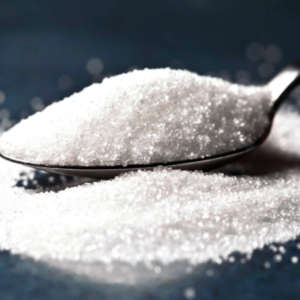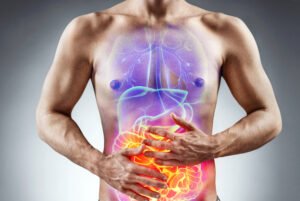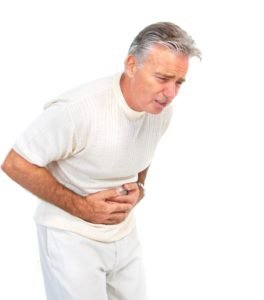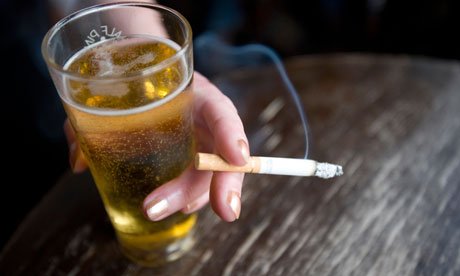
Mood dysfunction is particularly common after diagnosis of a chronic disease such as cancer. Sometimes there are no obvious causes, but medical complications such as steroid agitation, allergy to drugs and withdrawal from sedatives can all directly contribute to anxiety. Anxiety is also common before a routine scan and in the period waiting for results – doctors should consider “scanxiety” when requesting scans and try to shorten the time before results are given. Treatments that put women into menopause or reduce testosterone in men such as after chemotherapy, surgery or, more typically, hormone therapy, are known to worsen mood and trigger depression. Unless lower testosterone levels are needed, as is the case when treating prostate cancer, testosterone replacement therapy can be effective at improving mood and motivation in men. In postmenopausal women with breast cancer, Aromatase inhibitors can lower mood, although our own research has shown that different brands of breast cancer drugs, even within the same category, can be tolerated differently from one person to another.
.
Lifestyle factors affecting low mood anxiety and depression
.1.Blood Sugar and Insulin Dysfunction

Research from Scandinavia has revealed a clear association between elevated HbA1c (a three-month average of your blood sugar levels) and insulin levels with an increased risk of depression. Another study has demonstrated that young men with insulin resistance have been found to be three times more likely to suffer from severe depression, while it has also been observed that antidepressant medications do not alter this association because these medications target neurotransmitters (e.g. serotonin, dopamine) and do not address blood sugar and insulin dysfunction. Improving blood sugars and insulin control is an important first step when seeking to decrease your risk of low mood and depression – see tips to lower blood sugar.
2. Chronic & Systemic Inflammation

3. Gut Dysfunction & Dysbiosis

This gut-brain axis is highlighted by research showing how poor gut health leads to poor zonulin function. If Zonulin (a key molecule that regulates gut permeability) is impaired, symptoms of a leaky gut can develop, leading to a pro-inflammatory environment which creates the cytokine storm that contributes to low mood and depression.
Probiotic healthy bacteria has been the subject of a great deal of attention recently as more evidence emerges of a link between gut health and a healthy mind. Studies involving mice conducted by the Alimentary Pharmabiotic Centre at the University of Cork have highlighted how those fed with Lactobacillus had significantly fewer stress, anxiety and depression-related behaviours than those fed with standard feed. Moreover, bacteria-fed mice had lower levels of the stress-induced hormone corticosterone, as well as altered expression of receptors for the neurotransmitter GABA in the brain. In humans, a study from The University of California demonstrated how healthy women consuming probiotic yoghurt were reported to have improved brain function and less environmentally induced markers of stress.
4. Food intolerances and leaky gut syndrome

You don’t need to have a food intolerance to suffer from leaky gut. If you travel across multiple time zones, consume alcohol excessively, or chronically rely on NSAIDs (non-steroidal anti-inflammatory drugs, e.g. ibuprofen and naproxen) you’ll be much more prone to leaky gut and chronic inflammation. A dietary approach focused on traditional foods — animal protein, healthy fats, vegetables and unprocessed carbohydrates — will help keep blood sugar levels balanced and support a healthy gut microbiota, keeping systemic inflammation and low mood at bay – tips to improve gut health.
5. Exercise and avoiding a sedentary lifestyle

In terms of anxiety alone, analysis of data from 40 studies involving 3,000 participants reported that sessions of at least 30 minutes of exercise three times a week led to a 20% reduction in anxiety symptoms. The effect was greater among patients who were sedentary before the start of the intervention, and exercise proved effective at reducing anxiety in subjects suffering from a broad range of health problems including cancer, heart disease and fibromyalgia. The underlying reason for the benefit may lie in the release of positive brain chemicals (neurokins) that make people euphoric. Exercise is also generally fun and gets people out of the house and socialising and interacting with other people – read more about exercise.
6. Mindfulness-based stress reduction (MBSR)

Yoga was investigated in a small RCT involving women with breast cancer. The study demonstrated a significant decrease in anxiety states and improvements in QoL following surgery among participants randomised to be part of a regular yoga class.
Massage, especially when combined with exercises such as yoga or Pilates, is an excellent remedy for anxiety and the muscle tension associated with it. Hands-on complementary therapies such as reflexology and acupuncture have also been shown to improve anxiety.
7. Smoking, alcohol and illegal drugs

8. Good nutrition

There is also some evidence that deficiencies in vitamins, minerals and other micronutrients can cause dysfunctional brain activity. As well as a balanced diet with lots of fruit and vegetables and nuts, many people are turning to micronutrient testing in order to pinpoint any deficiencies they might have.
9. Vitamin D and sunlight exposure

10. Maintain a healthy weight

Summary – what can you do to help?
Vocalise your anxiety or depression with your clinical nurse specialists, oncologist and GP and begin discussing possible therapeutic interventions. Early recognition of symptoms and appropriate counselling, support and treatment often help stem the decline in self-esteem and breakdown of relationships. The more commonly recognised self-help strategies include support groups, relaxation classes and mindfulness, all of which can help you re-channel your negative energy or fear into positive enthusiasm for lifestyle and exercise.
- Take regular light exercise
- Avoid sugary foods and protect yourself from diabetes
- Take part in regular social activities
- Maintain an interest or hobby
- Each polyphenol-rich, healthy diet
- Eat healthy bacteria and consider a probiotic supplement
- In men without prostate cancer, consider androgen replacement therapy
- Try to maintain good sleep hygiene habits
- Consider investing in a psychological or mindfulness counsellor
- Avoid excess alcohol intake
- Avoid coffee and strong tea
- Stop cigarettes and other recreational drugs
- Review medications with your doctor
REFERENCES
1. Timonen. M et al. Insulin resistance and depression in young males: Findings from Finnish military conscripts. Psychosom Med 69(8):723 .
2. Pyykkonen AJ et al. Depressive symptoms, antidepressant and insulin resistance: the PPP-Botnia Study. Diabetes Care. 2011 Dec;34(12):2545.
3. Felger J, Lotrich FE. Inflammatory cytokines in depression: neurobiological mechanisms Neuroscience. 2013 Aug 29;246:199.
4. Emerging Risk Factors Collaboration. Diabetes mellitus, fasting glucose. New England J Medicine, Mar 2011;364;9:328.
5. G. S. Hotamisligil et al “Adipose expression of tumor necrosis factor‑α: direct role in obesity-linked insulin resistance,” Science, vol. 259, no. 5091, pp. 87 – 91, 1993.
6. Larrieu T, et al. Nutritional omega‑3 modulates neuronal morphology and depression-related behaviour via corticosterone secretion. Transl Psychiatry. 2014 9;4:e437.
7. Moreno-Navarrete JM et al. Circulating zonulin, a marker of intestinal permeability, is increased in insulin resistance.. PLos One 2012;7(5):e37160.
8. VanWijck K et al. Aggravation of exercise-induced intestinal injury by Ibroprofen in athletes. Med Sci Sports Exerc. 2012 Dec;44(12):2257.
9. Ma et al The rainbow diet and depression:
